My 2025 Trip to Sousse, Tunisia: What Did I Find?
Nearly ten years ago, Port el Kantaoui was the site of a deadly terror attack which left 38 people dead, including 30 British Citizens and dozens more injured. This all happened in broad daylight whilst people were relaxing and sunbathing on the beach.
The devastating impact on tourism was immediate. The UK Foreign Office issued a warning against all but essential travel to Tunisia. This led all major tour operators to halt holidays and flights to the country and a 30% downturn in tourists. Thousands of jobs were lost, and the economy of the entire region—including Morocco and Egypt—was affected.
The FCO began removing travel warnings in 2017, but the area is still regarded with concern by holidaymakers from the UK. Nearly a decade later, I thought I’d take a trip to check out the country for myself.
Sousse, Tunisia in January
I booked an all-inclusive package holiday with TUI, flying with Manchester from EasyJet. 8 nights at the Jaz Tour Khalef (4T+ on TUI, 4.5. 5 on Trip Advisor) cost me £650. Compared to similar holidays in the Canary Islands I was saving nearly £1,000 by going to Tunisia.
In January the weather isn’t guaranteed with average day time highs of 17°C. The week before I went had been wet, and temperatures peaked around 12°C. However, other than one wet and slightly cooler day, there was glorious sunshine, and daytime temperatures hovered around 20°C – perfect for a fair-skinned ginger like me!
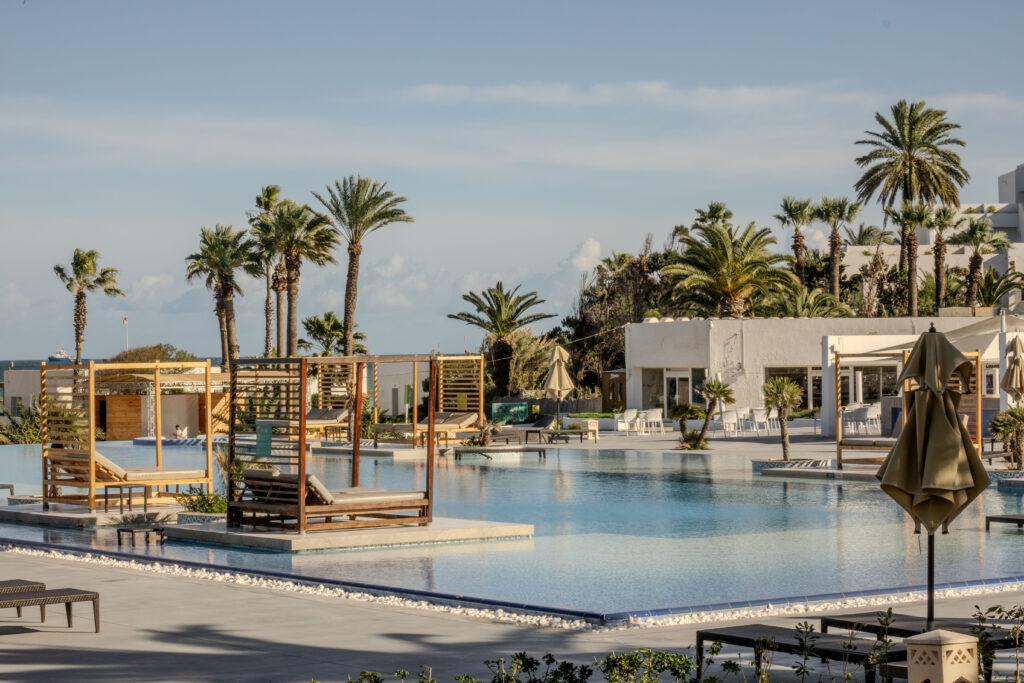
The Hotel: Jaz Tour Khalef
The flight into Enfida-Hamamet airport was the last commercial flight of the day. Having been seated in the first row I was off quickly and through passport control with relative ease. However there were only two passport control booths open, so those further down the plane had a considerably longer wait before they were through security and reunited with their baggage. I was landside within 30 minutes of the plane door opening, which is pretty good.
Given our relatively late arrival time, I wasn’t sure what to expect at the hotel and whether the restaurant would still be open. A very friendly greeting followed, and before check-in, I was given an all-inclusive band and taken to the restaurant to eat before it closed for the evening. All the paperwork was completed on a full stomach.
Check in was quick and easy, there was an additional city tax to pay, which I’d forgotten about, thankfully as I didn’t have any cash with me they took a card payment for this.
Tunisia is still predominantly a cash-based economy, even the hotel prefers cash for everything and, given that it’s a closed currency, I didn’t enter the country with any dinar. I had hoped to be able to withdraw money at the airport, but there was nowhere obvious to do this. This meant I couldn’t tip the transfer driver, or the concierge who took my bags to the room. I made this up the following day once I’d been able to withdraw cash in the hotel lobby.
The staff were great, and this theme continued throughout my trip. They were super friendly, professional and couldn’t do enough to help. It probably says more about me than them that I only had to sit down at the bar, and a beer was poured!
The hotel was quiet given the off-season, and one of the blocks was closed for maintenance. I had a room on the seventh floor with a great view over the Mediterranean, which caught the sun all day. The room was large, had all the modern amenities (with no extra charges for things like the safe) and was cleaned daily during my visit.
In fact, the whole hotel was super clean. Some of the reviews before I travelled mentioned the hotel was dirty, but I saw no evidence of this. It sometimes felt like there were more staff than tourists – out at 6am every day washing and cleaning all the internal and external areas. If there had been cleanliness issues, the hotel had clearly worked hard to rectify them.
That said – you can see inside that the hotel needs a bit of love and investment. The balcony had been repainted multiple times, and the wooden railing appeared to be rotting in places. There were some other minor annoyances – some of the lift call buttons didn’t work, the shower drain cover was bent (I had to remove it after kicking it with my big toe).
This is a bit of a theme of Sousse though, and likely a result of the reduced number of tourists and associated lack of funding. The hotel staff were clearly doing their best, going above and beyond, and these were very minor niggles.
The all-inclusive food was very much what you’d expect, but there was enough variety across the eight nights to keep me coming back for more. The à la carte restaurant was open, but I was happy enough with the buffet not to bother booking to eat in here.
As with most all-inclusive holidays only local spirits were included so I mostly stuck to the local lager, which was good enough.
The hotel has, as part of their offering, a Spa with an indoor pool. During the winter season, the indoor pool (saltwater and heated) is free for all hotel guests. I was also given a voucher for a complimentary 30-minute massage when I checked in. I’m not sure what qualified me for this, but there were clearly plenty of paying guests, so maybe being a solo traveller had its benefits.
The spa is one of the more modern areas of the hotel and the staff were, like everyone else I encountered, exceptional. I left feeling on cloud 9 and more relaxed than I had in years. Unlike some hotels, the prices were pretty reasonable, with a 60-minute massage available for 150TND (~£37). Definitely worth the money.
The grounds were immaculate and, with their own section of private beach, I spent most mornings on a sun lounger reading my way through the latest James Ryker book. The sea was far too cold for swimming, at least for me.
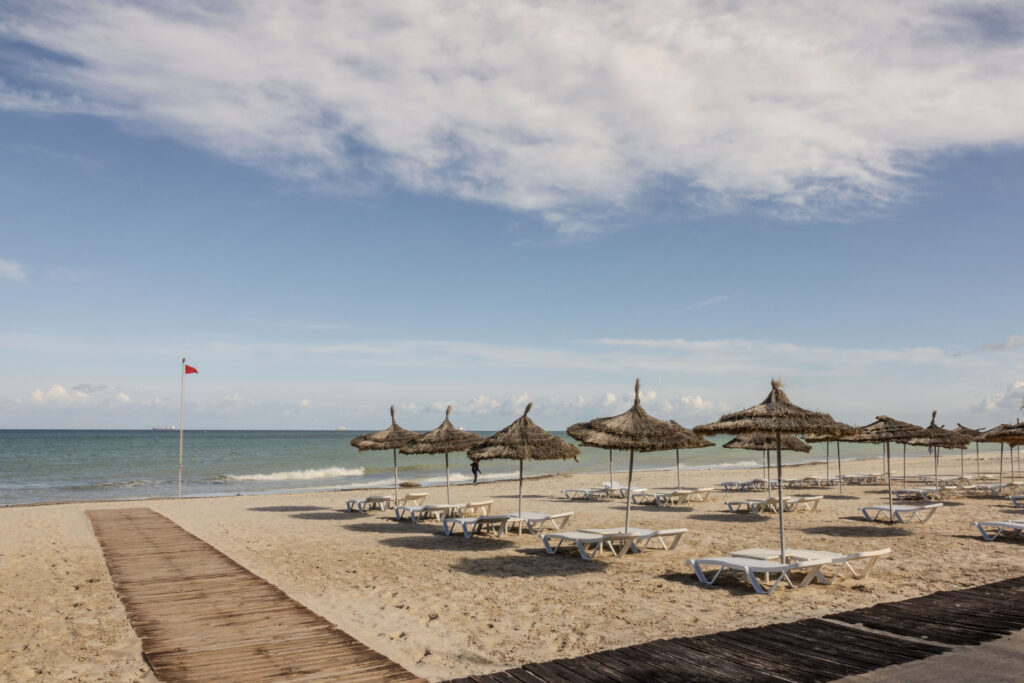
I rarely take part in the “entertainment” on holiday, so have no comment on this – but it did look like the entertainment team were working as hard as anybody else.
Security
As you’d expect, given the events of 2015, there’s quite a lot of security in place around Sousse and in the hotel itself. On the journey from the airport, we passed through multiple police checkpoints where all the police were armed.
However, around the hotel, it felt mostly like security theatre – there were multiple gates to pass through to get to the hotel, but these were fairly rudimentary and wouldn’t have done much to stop a would-be attacker.
The same applied in the hotel – there was an x-ray machine to scan your luggage and a metal detector to walk through, but the two doors either side were unlocked and you could walk through those and avoid the security. I didn’t see any armed staff on the premises (which is for the best – it would have been difficult to relax if the bar staff carried weapons!), and the security on the beach consisted of one person whose main role seemed to be handing out cushions for guests.
Tunisia is now much safer than it was, but if the aim of the security was to provide reassurance, then it didn’t work. Although that may be due to the number of thrillers I read, always looking for John Milton or Jack Reacher to come barrelling around the corner.
Closed Currency & Cash Only
Being a closed currency there are heavy restrictions on bringing local currency (Tunisian dinar or TND) into the country with you. Depending on what you read online, people recommend either taking GBP and changing it at your hotel, or just using ATMs to withdraw what you need.
I went for the latter option, especially as with my Monzo account I can withdraw 600 GBP each month without fees. The ATMs in the hotel lobby charged either 10 TND (BH Bank) emoandor 12 TND (BIAT). 400 TND saw me through the week, including tips.
I was probably generous with tipping the staff. Wages generally range between 500 – 100 TND a month (£126 – £252 or $160 – $330), so tips are an essential part of their income. I generally left 10 TND after a meal, or 20 TND if I’d spent the evening in the bar. Not everybody does this, but given how attentive and hard working the staff were, I felt they deserved it.
Cash is preferred everywhere and, perhaps strangely to us, card isn’t accepted everywhere. If you wanted to pay by card in the hotel bar you had to go to the cashier as only they had a card machine. Lots of the local shops only take cash, and although you can now book a taxi through the Bolt app, you can’t pay through the app – the drivers only accept cash.
Everybody should make sure they travel with a debit card that has fee-free withdrawals (my loyalties obviously lie with Monzo, but other options are available). Local ATM machines generally charge a small fee, so try and plan ahead and minimise the number of withdrawals you need to make. Bear in mind though, if you try and leave the country with TND they will often confiscate it.
If you leave the hotel, take the bare minimum cash with you. It makes it easier to deal with some of the hawkers who will demand you search your pockets if you’re trying to haggle (more on that below).
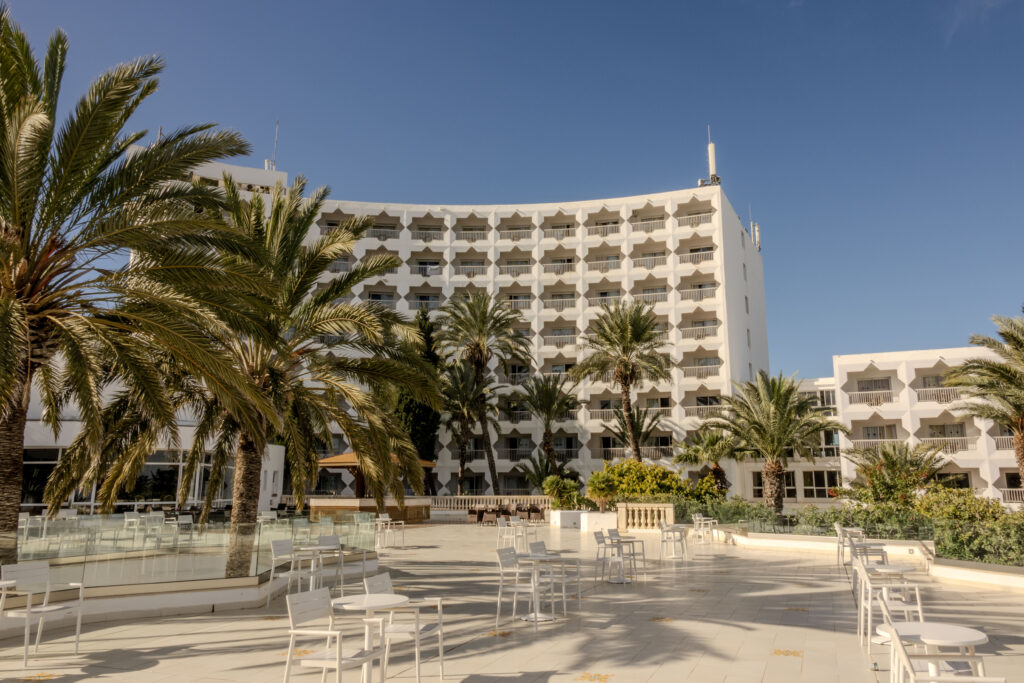
Sousse itself…
I could have spent the week there without needing to leave the hotel, but I always like to explore the local area on foot. Plenty of the reviews mention being harassed by locals when you’re out and about, either by shopkeepers desperate to sell their wares or by locals who want you to change foreign currency (there are restrictions on how much foreign currency a local can exchange each year), but this wasn’t my experience.
I walked around without any hinderance, until I went to visit The Medina. I consider myself a pretty wise traveler, but not long after entering somebody “bumped” into me, apologised and started a bit of friendly small talk. Before I realised it, I was being shown around the place and ended up in a tourist shop being sold local spices. Luckily I’d left the hotel with barely any cash, when I explained this Mustafa continued to show me around, despite me making it clear I couldn’t pay him anything.
Outside of the hotel people are just as friendly and without Mustafa’s guidance, I’d probably still be wandering around the warren of streets. By the end of his little tour, I felt bad that I couldn’t given him any money.
The Medina was fascinating – originally built in the 9th Century and featuring the impact of multiple different cultures over the years, the place was thriving, with locals and tourists.
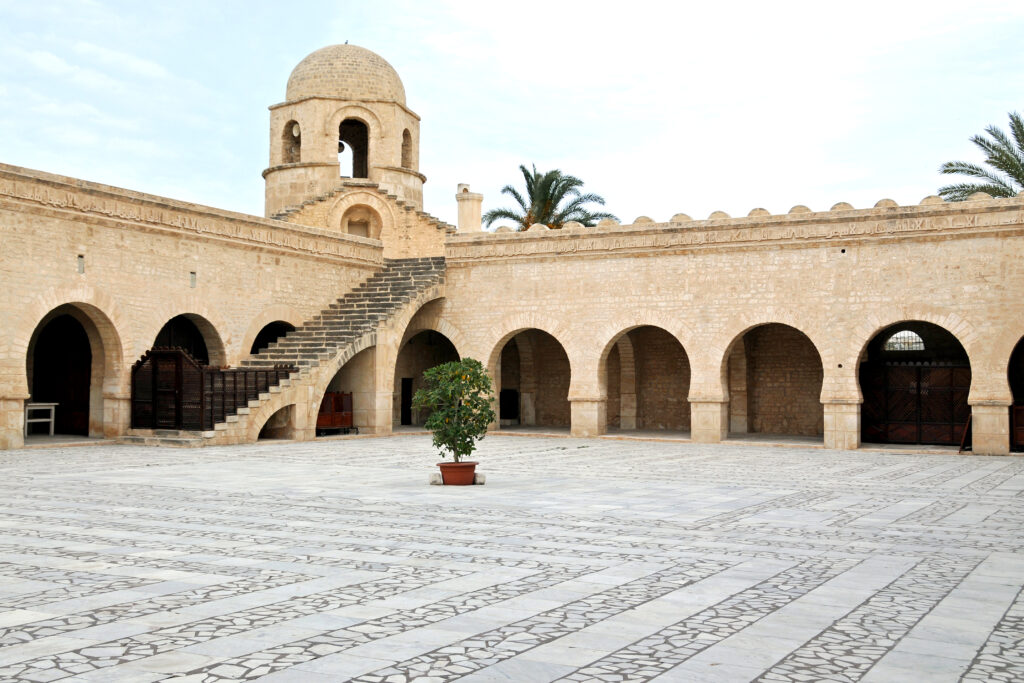
The same can’t be said for the rest of Sousse, where the decline in tourism has had the most impact. There were a number of empty buildings in various states of decay, including right on the breakwater. The majority of these appeared to have previously been hotels that had been left to decline after the events of June 2015.
There are some signs that the economy is improving though, several new buildings were in progress and renovations of others suggests that Sousse is on the up. Either way, it wasn’t off-putting – just a little sad to think about the impact the actions of a single gunman had.
Final Thoughts
I came to Tunisia thinking it would be a cheap, all-inclusive holiday and that I probably wouldn’t return again – a place to scratch off on my world map. I’m leaving thinking that I might well return in the future. It was my first solo trip after splitting up with my partner last year and I thoroughly enjoyed my first trip to the African continent.
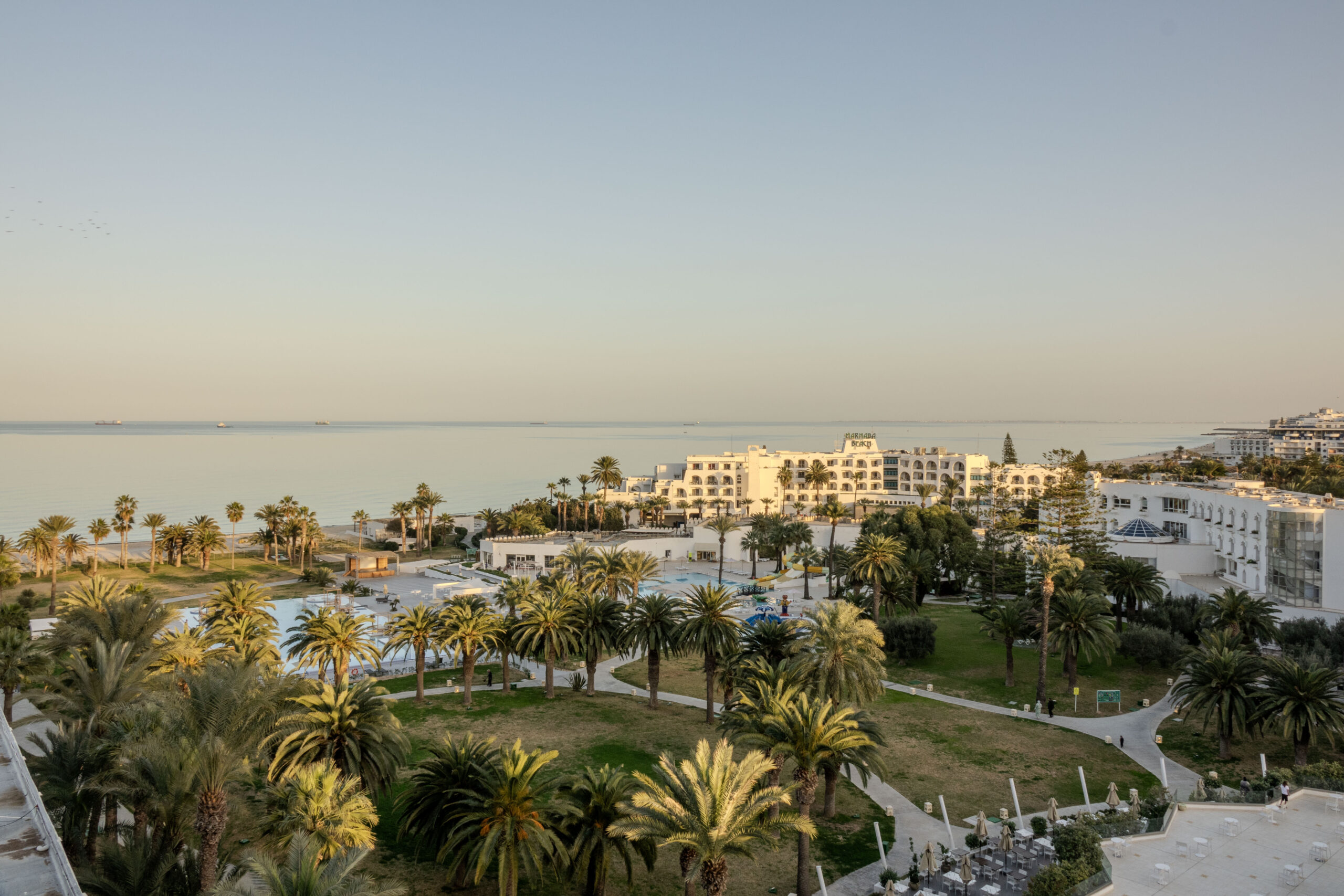
No Responses